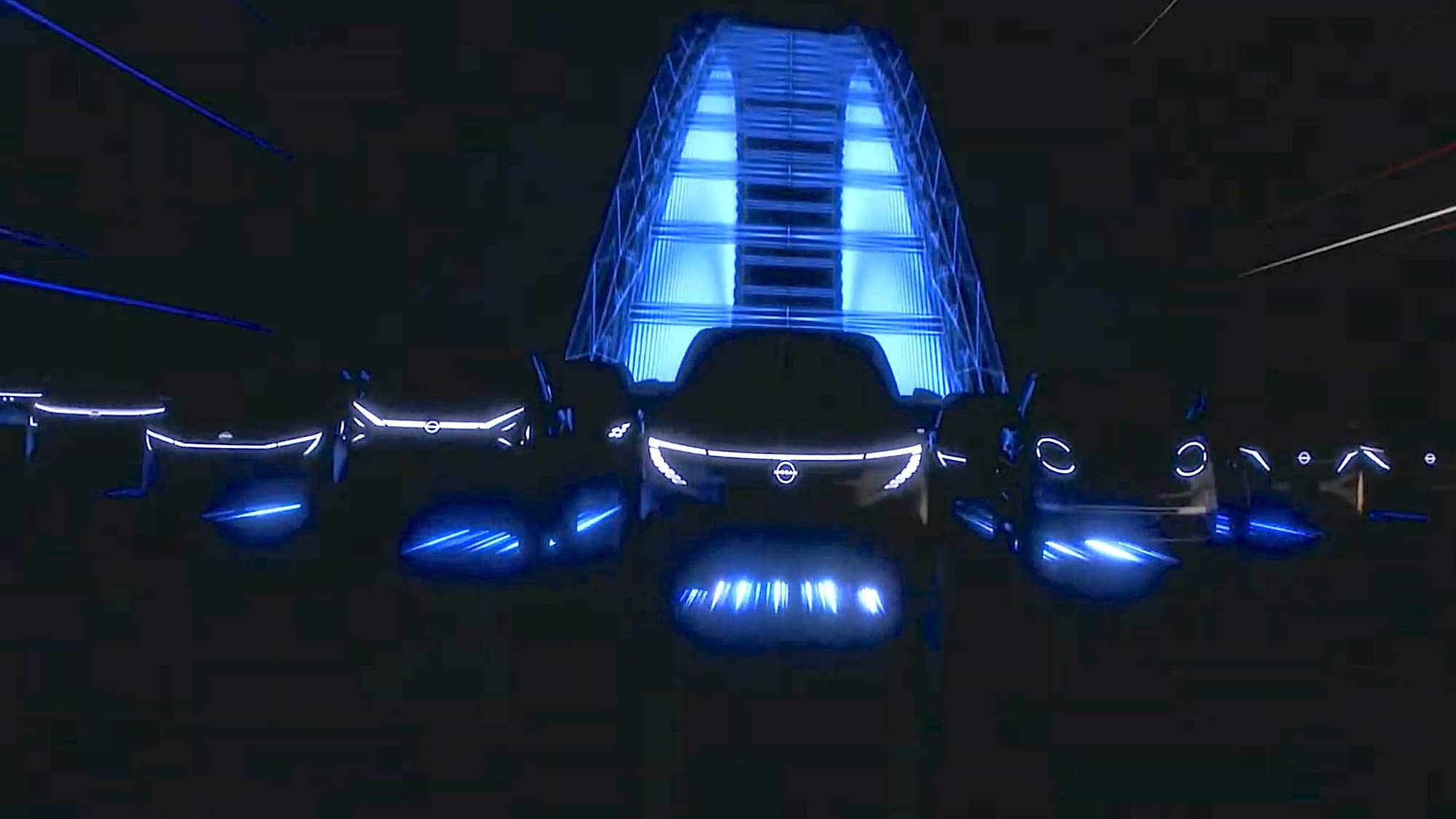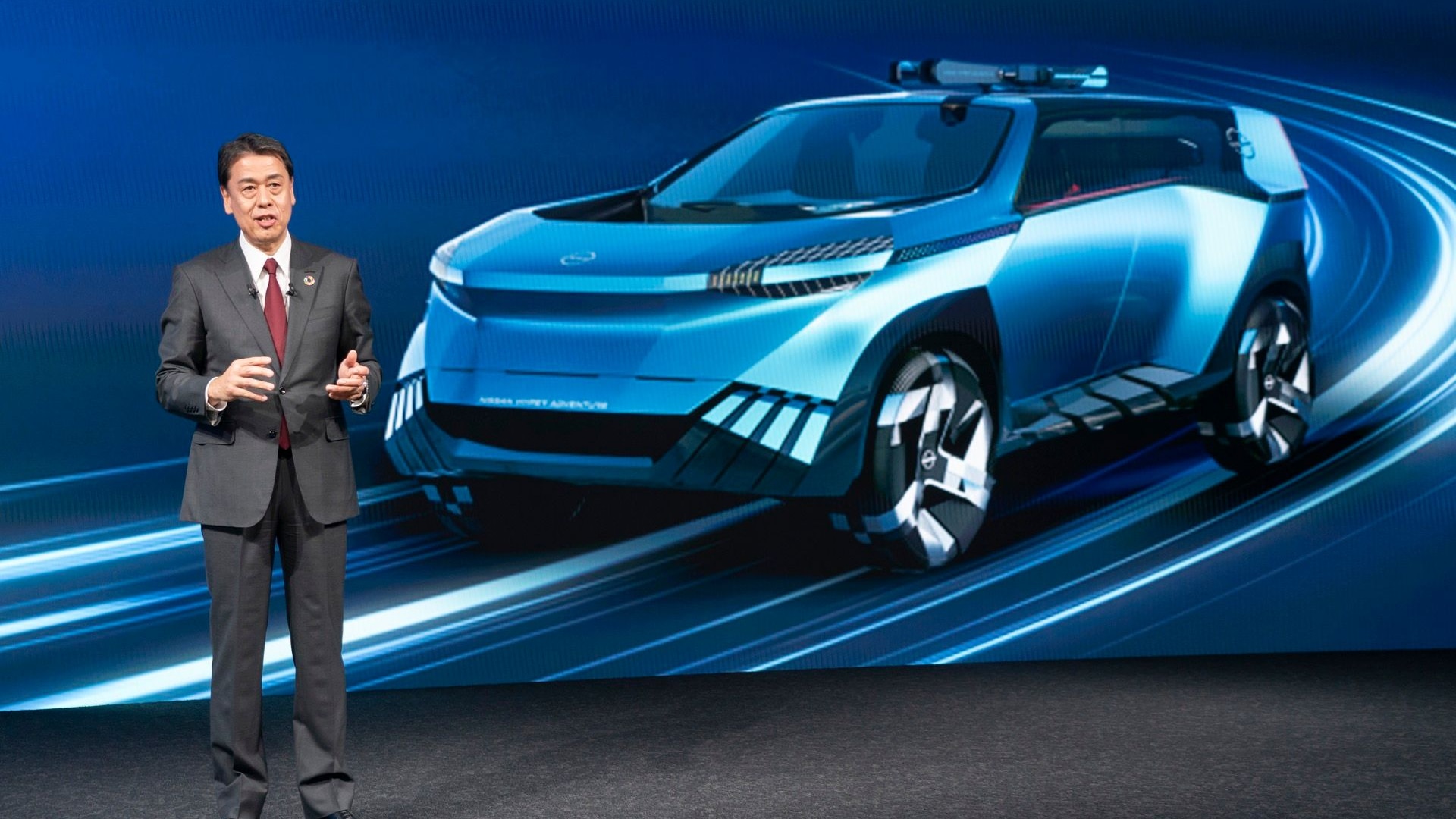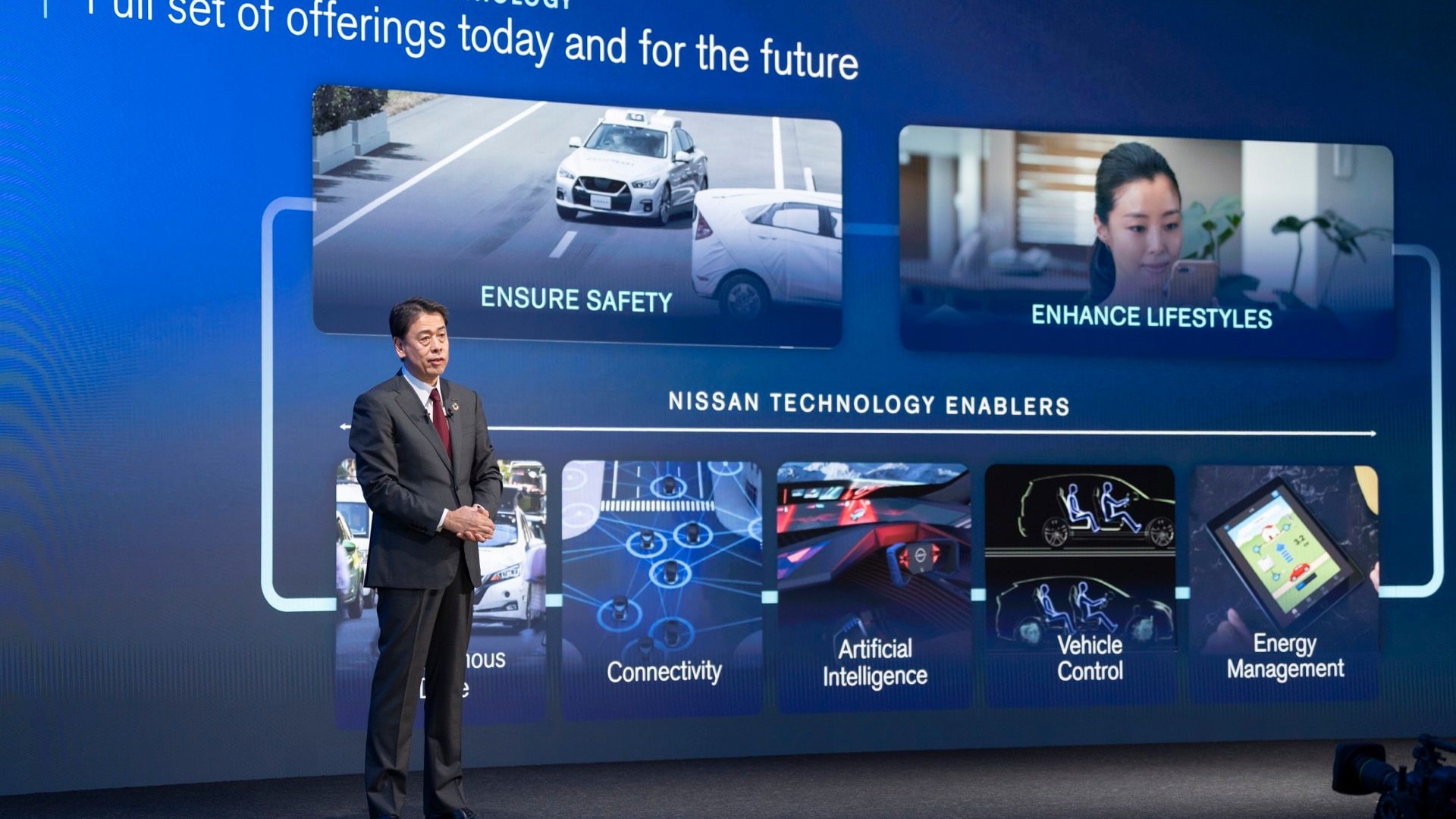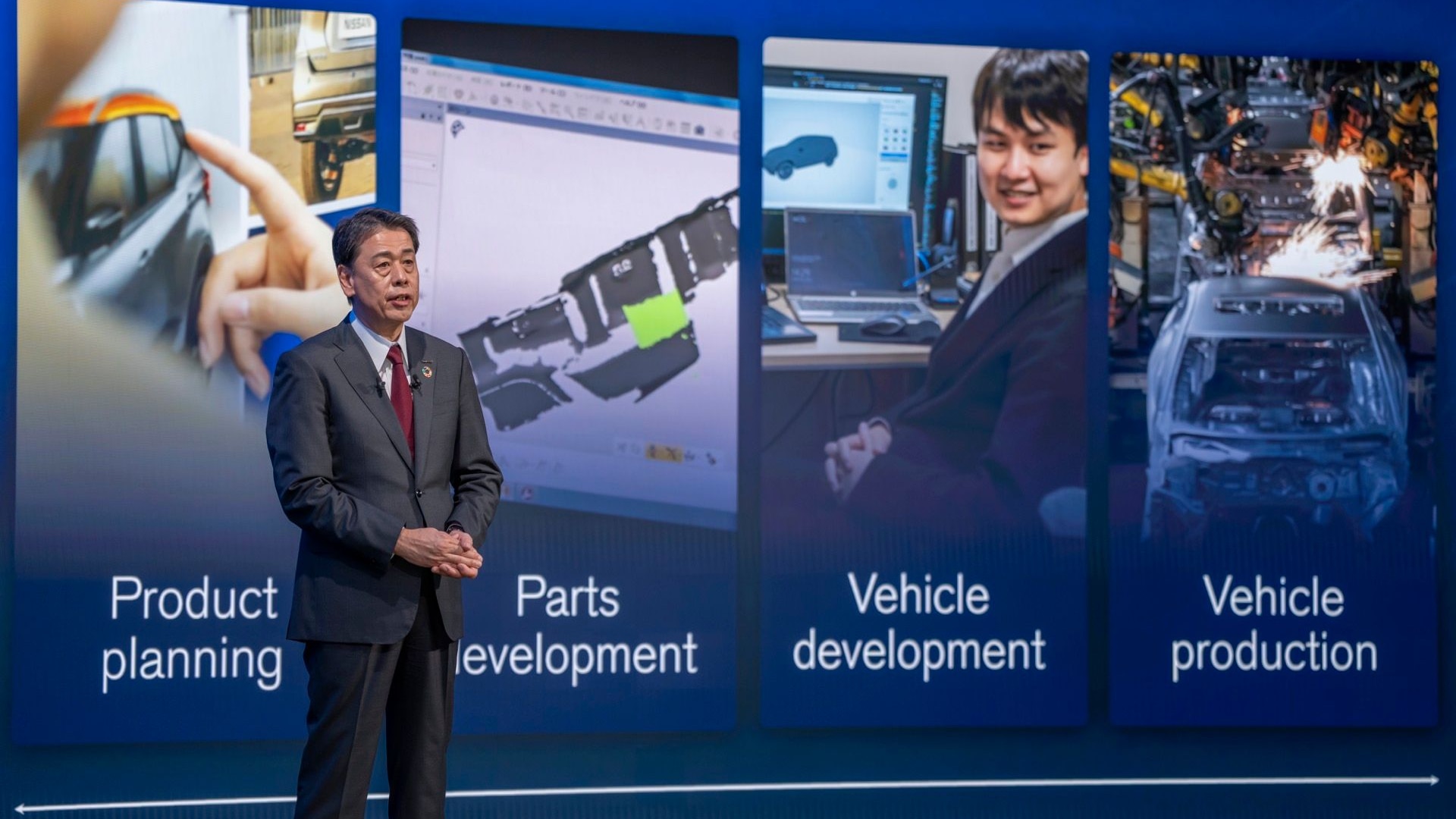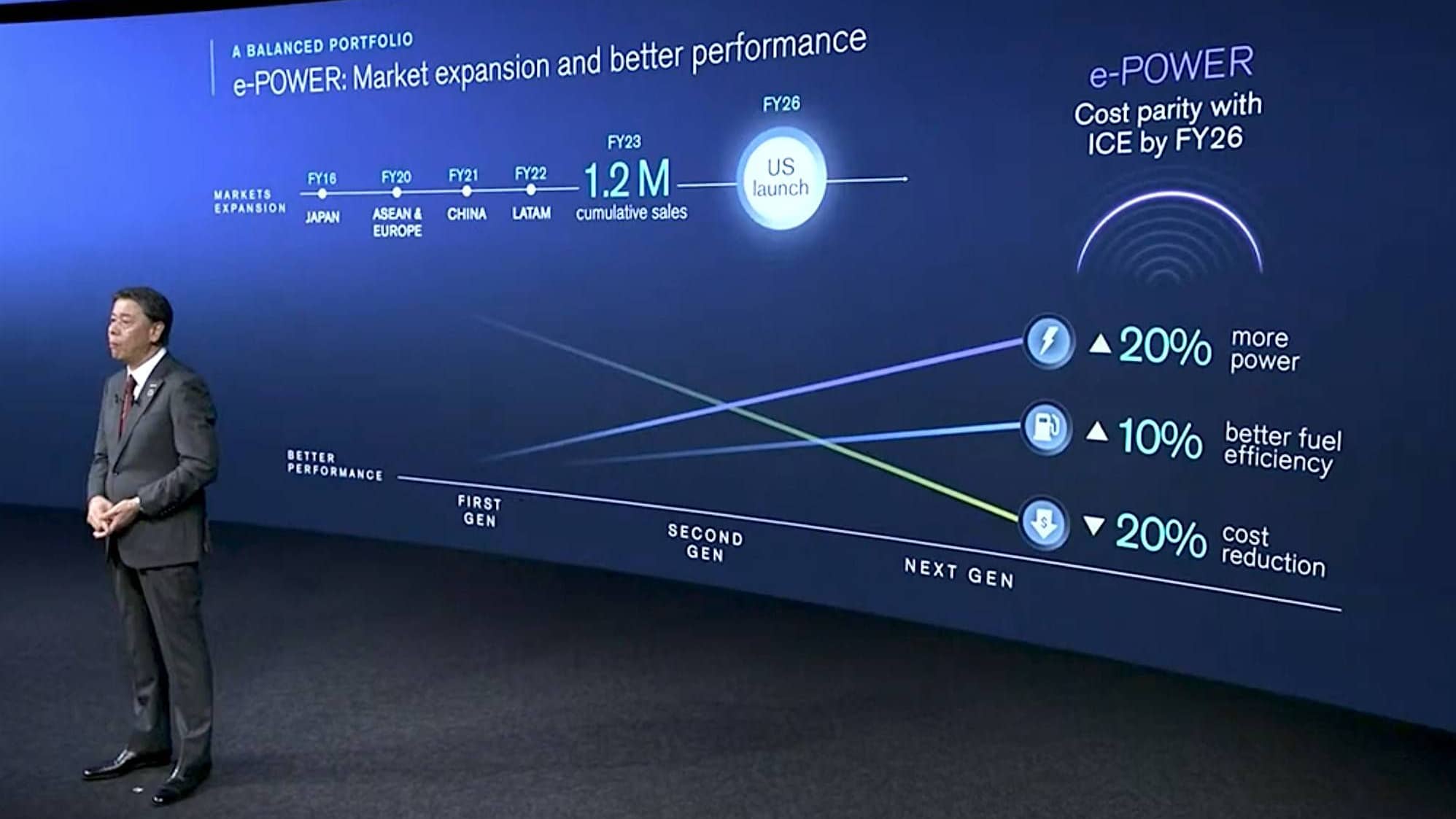Nissan on Monday revealed a roadmap that will pivot the automaker back toward hybrids and plug-in hybrids for the U.S., as well as plans for a next generation of higher-volume EVs that will cost 30% less.
As such, they’ll cost the same or less than combustion models by 2030.
Under a new business plan termed The Arc, the automaker intends to recover some of its early EV sales leadership, achieving this cost reduction in its next-generation EVs through grouped “family” development, utilizing common upper-body parts and modularized powertrains. Models using this approach will be headed into production in 2027.
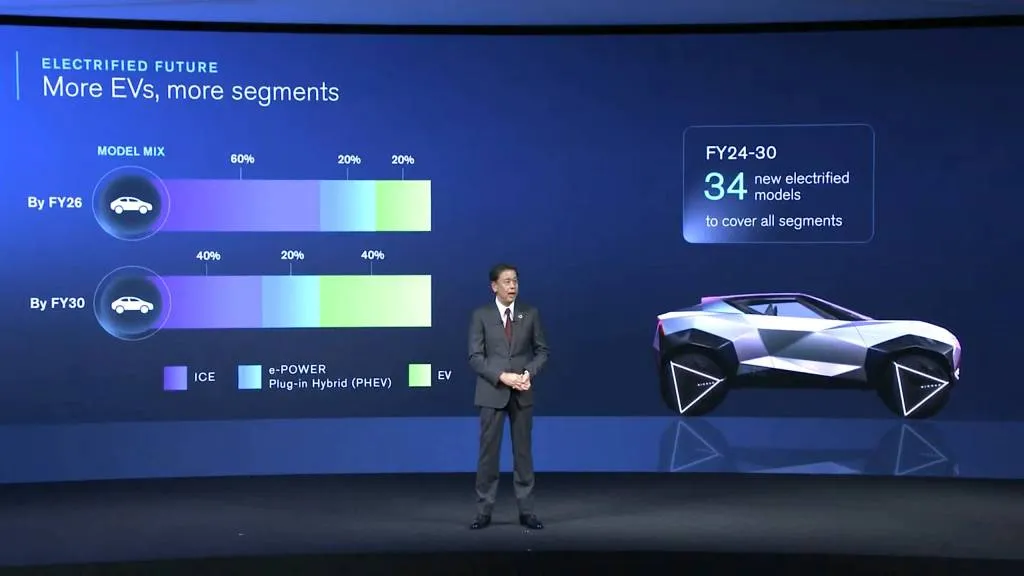
Nissan EV hybrid and EV plans, as of March 2024
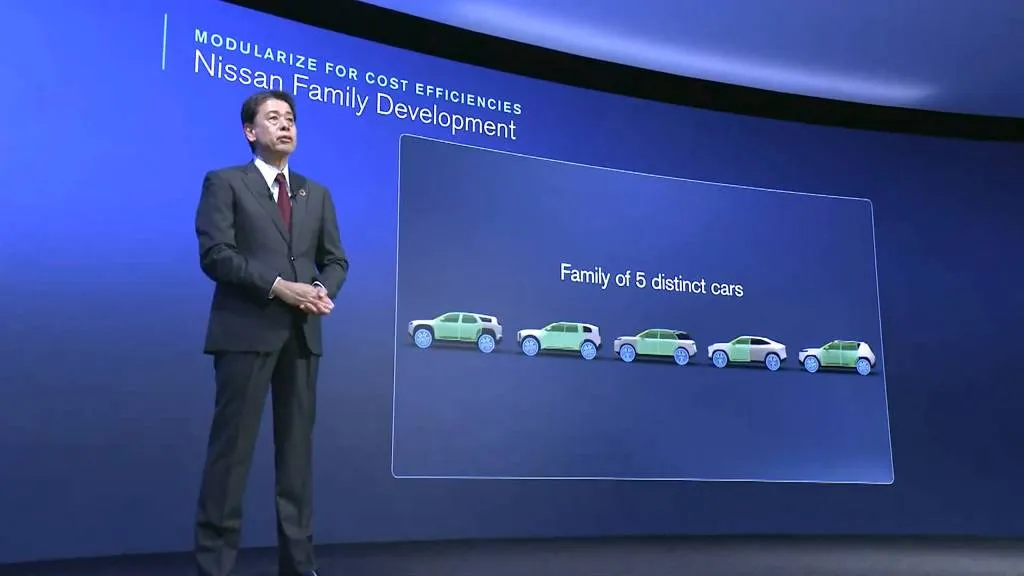
Nissan plans family of vehicles with same shared upper body components
On a market basis, it will follow “a tailored regional strategy and prepare for an accelerated transition to EVs, supported by a balanced electrified/ICE product portfolio,” the automaker explained. Sources have confirmed to Green Car Reports that two larger U.S. EVs set to be built in Mississippi around then will incorporate that strategy.
Multiple hybrids and plug-in hybrids
Globally, fully electric models will double from 20% of Nissan’s global mix in 2026 to 40% in 2030, the company anticipates. Nissan previously said that it also plans for 40% of its U.S. sales by 2030 to be fully electric. While it didn’t provide an update on the latter figure with Monday’s presentation, it did say it plans to refresh 78% of its passenger vehicle lineup while launching e-Power and plug-in hybrid models.
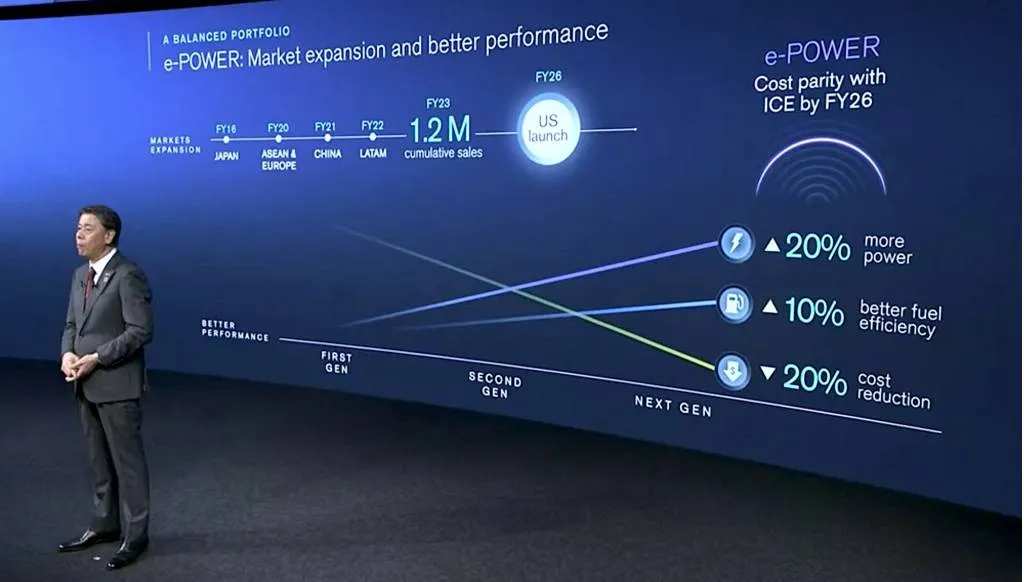
Nissan e-Power U.S. launch timeline
Nissan's e-Power hybrids will arrive in 2026 for the U.S., the same year it expects e-Power to get to a cost parity with combustion engines alone. In its latest iteration, Nissan is claiming 20% more power, 10% better efficiency, and a 20% cost reduction versus previous versions of the hybrid tech.
The automaker has already outlined that many of its models will shift to a modular propulsion strategy that groups future e-Power hybrid and EV efforts under the same shared components that can even be produced on the same line. That strategy, being introduced this year, is set to reduce powertrain costs by about 30% versus 2019.
Nissan currently doesn’t have a single hybrid or plug-in hybrid for the U.S. market. It’s already hinted that they’re on the way, and that it might be pivoting its e-Power hybrid tech toward trucks—and a new parallel-hybrid mode for that system that might make it a better fit for U.S. driving. That’s something Honda’s two-motor hybrid system already provides, and with Nissan and Honda considering a strategic partnership for electrification, it seems that’s a possibility.
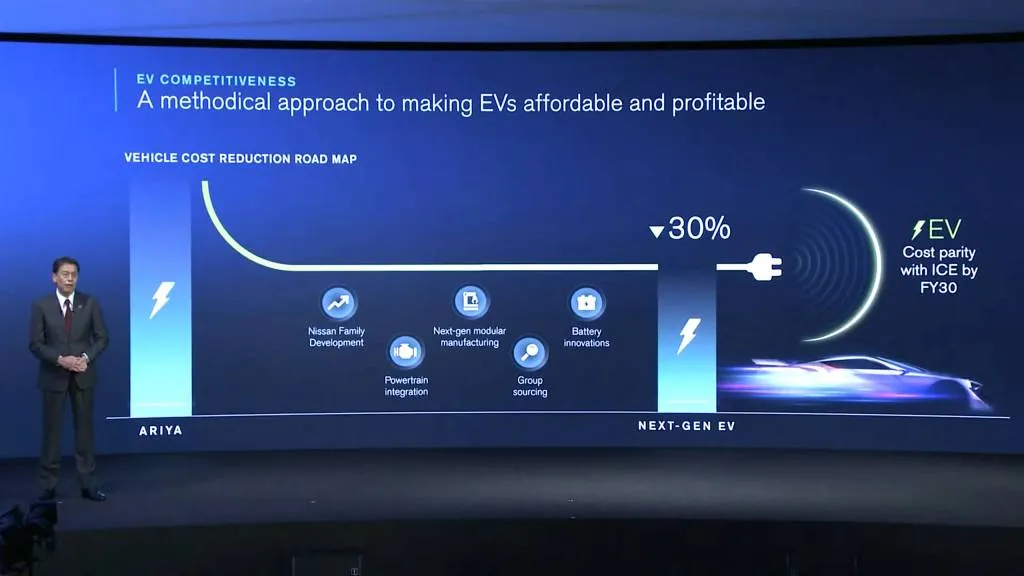
Nissan sees 30% EV cost reduction by 2030
LFP and solid-state batteries, NCM with half the charge time
The automaker on Monday also noted that it plans to invest more than $2.6 billion in battery capacity including nickel cobalt manganese (NCM), lithium ferrous phosphate (LFP), and all-solid-state batteries “to provide diversified EVs to meet different customer needs.” All three new and revamped battery types, Nissan says, will be launched in EVs in fiscal year 2028.
On the LFP front, Nissan says that such batteries being developed and produced in Japan will reduce battery cost by 30% in the mini-compact Sakura EV.
And in the NCM lithium-ion area, Nissan says that it will slash fast-charging times in half while boosting energy density by 50%, versus current battery tech used in the Ariya. Nissan boasted that these batteries will debut in a new three-row electric SUV due in 2028.
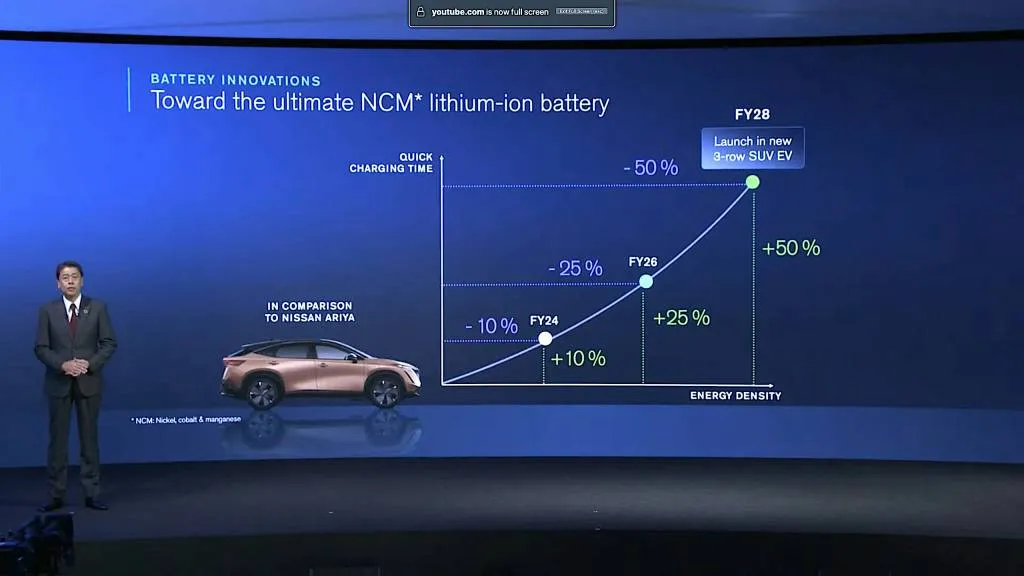
Nissan confirms next-gen NCM battery tech for 3-row SUV
The brand's second EV after the Leaf, the Nissan Ariya EV is a very competitive entry in the U.S. market, on all but price and EV tax-credit eligibility (it’s built in Japan). It offers up to 304 miles of range, introduces a new all-wheel-drive system, debuts an elegant new interface, and provides a luxurious level of ride comfort and cabin quiet.
Nissan had intended its Leaf to be its volume EV, sold in the millions, with various global derivatives at one point in the works. Although the original model was well-received, the automaker’s EV ambition slowly fizzled and it took 12 years to achieve a million sales for the model. Nissan may soon have another chance to build that volume; a successor to the current Leaf is due in 2026 or 2027.
